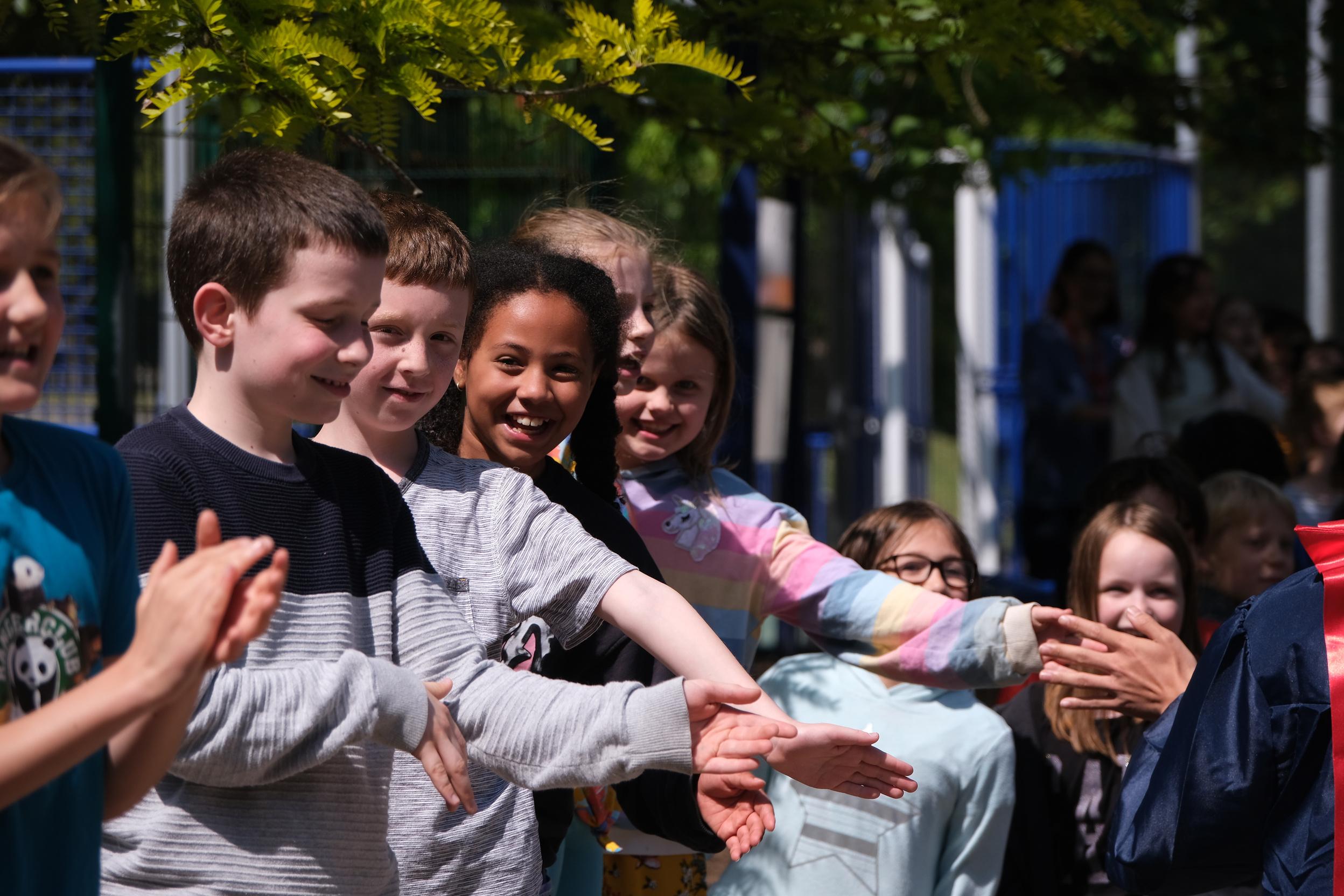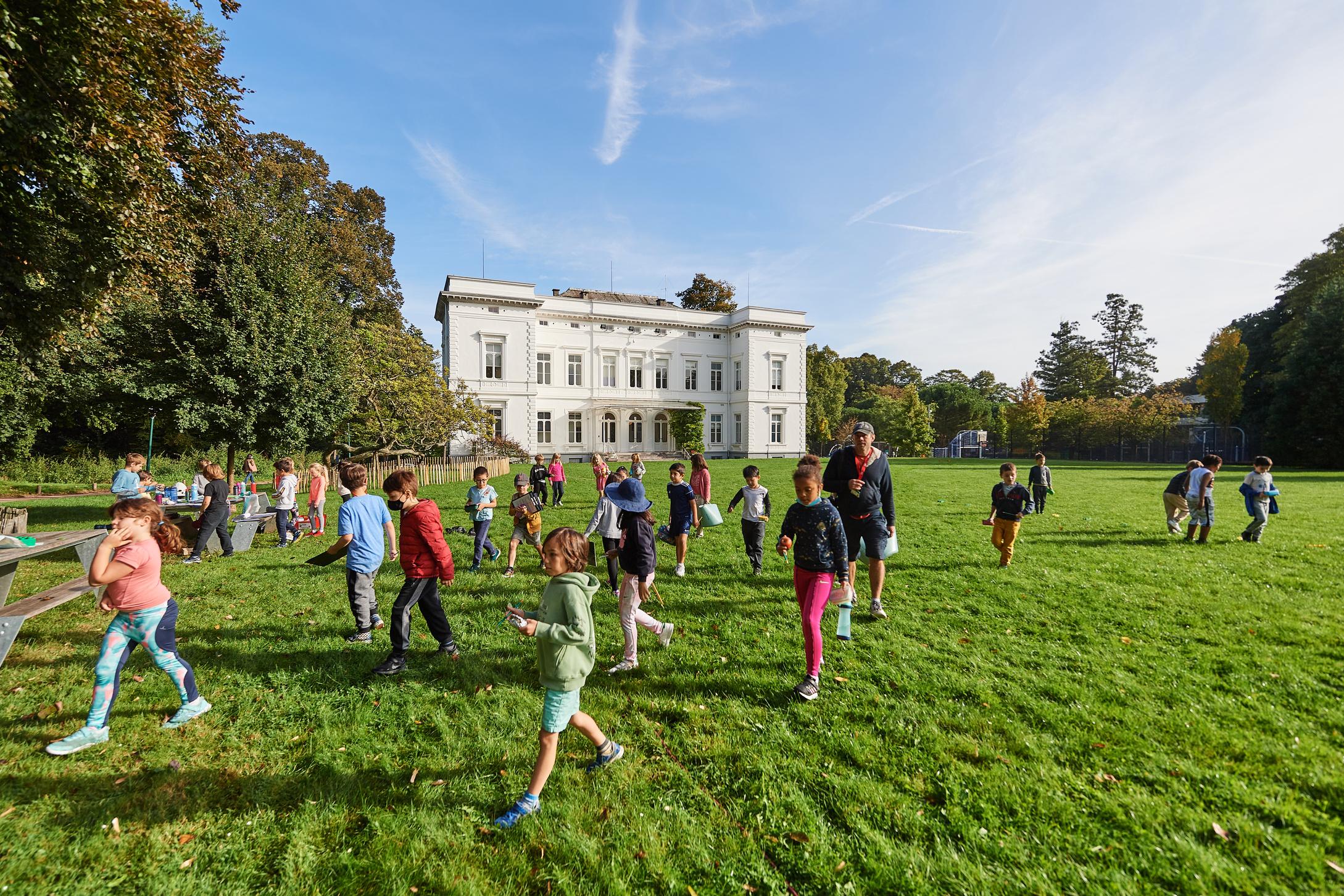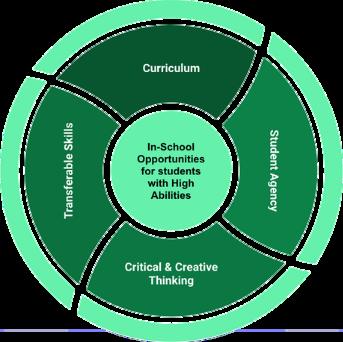


Multiple perspectives on challenge
Perspectives from cultures around the world are very different around the role of education and challenge. From a priority of academic achievement to explorations of passions, we can find worth and learning within each approach. We are blessed to have these multiple views present in our own community, as the diversity of thinking makes our community stronger.
However, the idea of challenge can be a loaded discussion of diverse opinions. Many of us may have had experiences in our past that bring ideas about what ‘challenge’ in schools should look like, sound like, feel like. And, we now know more. Brain research, developmental studies, and long range impacts of interventions have shaped the evolution of understanding what all students now need As Dr Papp, from Harvard University, shares, “Find things to require the brain to do novel work, because it’s encountering something it hasn’t experienced before, which changes how (the brain) connections are made.”
Shifts in practice toward challenge
In 2019, the National Association of Gifted Children crafted an updated position statement about the shift in thinking and research regarding the education of students They emphasized that schools should, “provide access to challenging learning opportunities for all students, especially those who are more likely to be overlooked, so that emerging talents may be recognized and developed.” Other shifts include:


Other shifts include:
MORE emphasis on...
Identifying who needs additional challenge
Providing inclusive opportunities for appropriate challenge for all learners, including the highly able.
Ensuring multiple opportunities for student need to be identified or recognized
Providing a range of different services to focus on different needs
Providing scheduling and grouping structures and support so student needs can be met in the regular classroom as much as possible
Share responsibility of all teachers
Professional development for all teachers to support high end differentiation
LESS emphasis on...
Identifying who is gifted
Providing exclusive opportunities for challenge for a specific group of students
Using a one-off screening tool or identification process
Providing a ‘one size fits all’ program
Relying heavily on pull-out models of support
Responsibility of the ‘gited support’ teacher
Professional development only for the ‘gifted support’ teacher
(Gallagher & Curtain, 2017)
Current research has directly influenced the working definition of challenge that we use at ISB Learners are challenged when they are striving towards models of excellence, and are stretched in ways that are personal, relevant and aspirational, resulting in high engagement and persistence

What is Talent Development?
Talent development refers to the deliberate cultivation of ability or interest in a specific domain Learners access different levels of experiences based on their readiness for the next levels of challenge. All learners move fluidly among the levels, depending on what the goals are Higher leveled experiences require greater competency and commitment to demonstrate success.
Level 1: Discovering & Building
Level 2: Curious & Exploring
Level 3: Enthusiastic & Performing
Level 4: Commited & Expert
Highly individualized, unique situations; qualifying scores may be necessary for some opportunities
Available to all; Competency based
Available to all; Chosen by those interested
Available to all students
Challenge within the school day
Challenge during the school day doesn't always mean more work or more advanced work for Level 3 and 4 learners. There are many different ways that our teachers can provide challenge, and support talent development within the classroom These typically fall in four primary categories:


How much challenge is enough?
HEALTHY challenge feels: UNHEALTHY challenge feels:
Exciting
Overwhelming Inspiring Anxiety Producing
Like you know you are progressing
Like you are learning from mistakes
Like you want to persist or explore
Like you can see lots of ways to think
Like you know how to make your work better
Like you or your work needs to be perfect
Like you are short tempered
Like you need to escape
Like you are dreading to participate or engage
Like you procrastinate to avoid
-JohnFischer “ ”
The essence of our effort to see that every child has a chance must be to assure each an equal opportunity, not to become equal, but to become different - to realize whatever unique potential of body, mind, or spirit she or he possesses.


